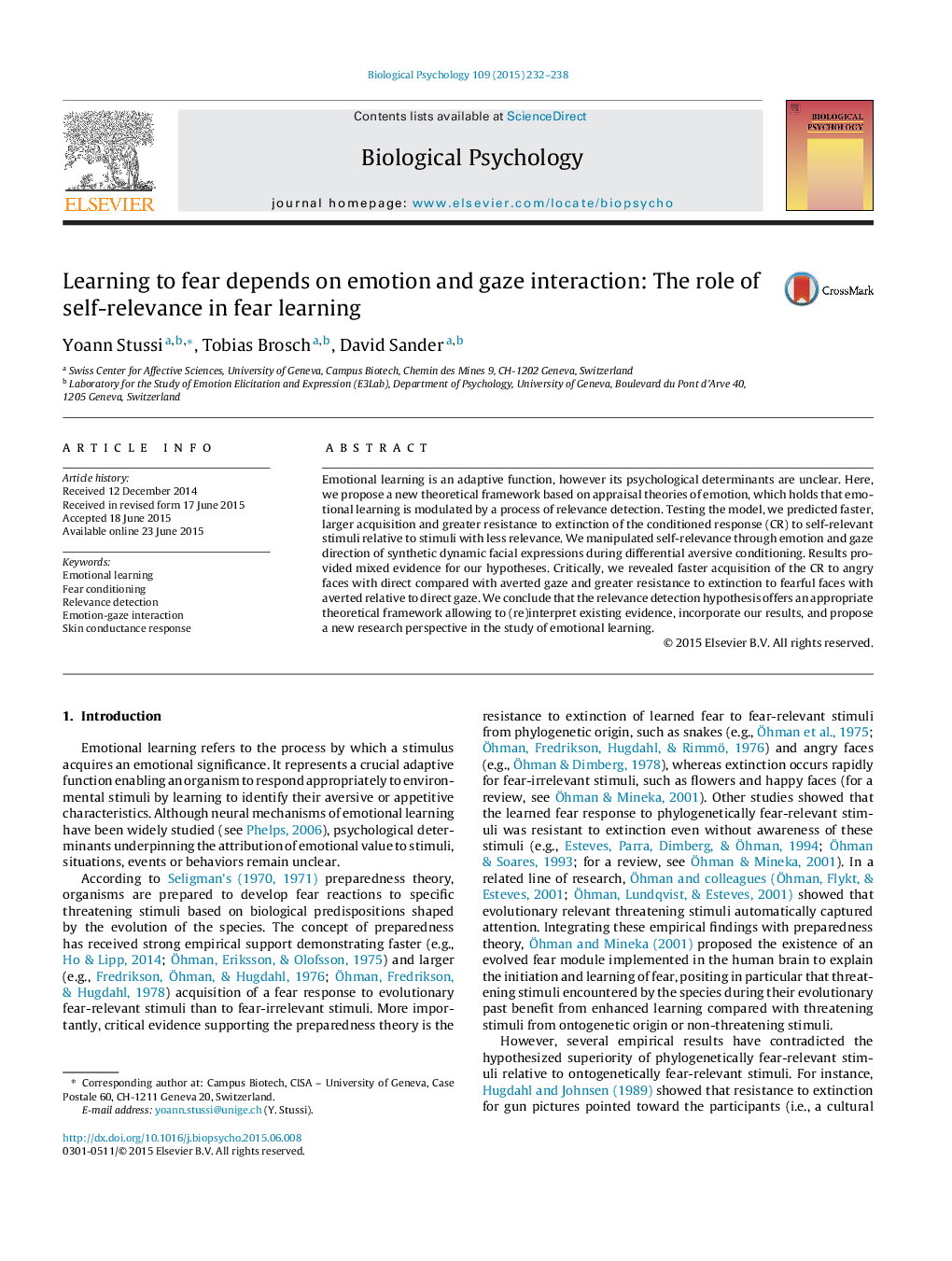| کد مقاله | کد نشریه | سال انتشار | مقاله انگلیسی | نسخه تمام متن |
|---|---|---|---|---|
| 920835 | 1473864 | 2015 | 7 صفحه PDF | دانلود رایگان |
• We propose that emotional learning is driven by a process of relevance detection.
• We manipulated emotion and gaze direction in differential aversive conditioning.
• Learned fear was acquired faster to angry faces with direct than averted gaze.
• Learned fear was more persistent to fearful faces with averted than direct gaze.
• This study offers a new research perspective in the field of emotional learning.
Emotional learning is an adaptive function, however its psychological determinants are unclear. Here, we propose a new theoretical framework based on appraisal theories of emotion, which holds that emotional learning is modulated by a process of relevance detection. Testing the model, we predicted faster, larger acquisition and greater resistance to extinction of the conditioned response (CR) to self-relevant stimuli relative to stimuli with less relevance. We manipulated self-relevance through emotion and gaze direction of synthetic dynamic facial expressions during differential aversive conditioning. Results provided mixed evidence for our hypotheses. Critically, we revealed faster acquisition of the CR to angry faces with direct compared with averted gaze and greater resistance to extinction to fearful faces with averted relative to direct gaze. We conclude that the relevance detection hypothesis offers an appropriate theoretical framework allowing to (re)interpret existing evidence, incorporate our results, and propose a new research perspective in the study of emotional learning.
Journal: Biological Psychology - Volume 109, July 2015, Pages 232–238
